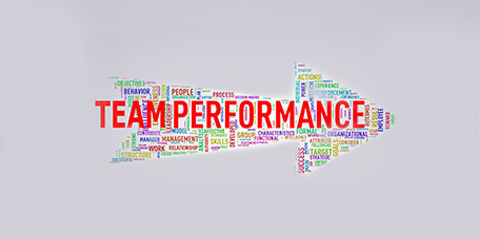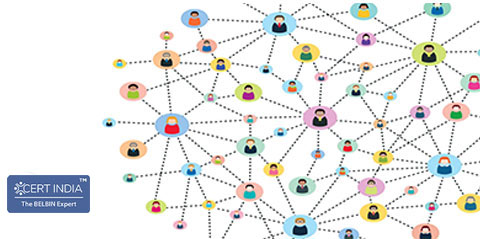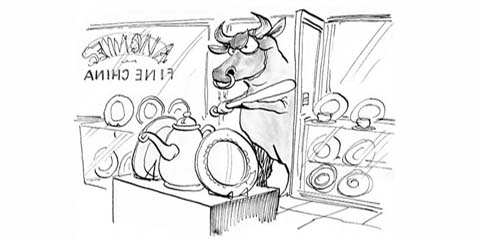Our environment might show promises of growth. The underlying sentiment might be positive, and conducive to development. What difference do these make to an organization that doesn’t foster a ‘growth mindset’?
In a recent study at Stanford University, researchers found that students who believed their intelligence can be developed outperformed those who believed it is fixed. And the same positive patterns continue on into adulthood.
Employees who work in companies that foster a “growth mindset” are 34% more likely to feel a strong sense of ownership and commitment towards the company.
At the same time, too much attention to competencies and performance management make for a culture that makes its people feel compelled to effortlessly excel at everything. “When people work for a company that esteems them for their innate talent above all else, they tend to run and hide when their image is at risk.”
Employees in a “growth mindset” company are:
- 47% likelier to say that they trust their colleagues
- 65% likelier to say that the company supports risk taking
- 49% likelier to say that the company fosters innovation
Have we come to depend so much on ‘inborn talent’ as a measure of potential, that we are taking away from the vulnerable yet meaningful striving involved in learning and growth?
When it comes to personality and behaviour tests, ‘traits’ and ‘types’ sound like classic rigid mindset language, without much room for flexing or adapting. One often wonders if these are about tagging people in the name of self-awareness? And, once tagged are we encouraging people to play safe within their comfort zones?
Here is how things change for the better, when using the language of Belbin Team Roles
1. Belbin helps expand our repertoire of behaviors
A good workout regime helps us discover and develop the power of umpteen muscles in our body. As we expand our choice and use of muscles, we grow our physical fitness. Our behaviors are muscles too! Wider the repertoire of behaviors we choose and use, the better we are in getting things done at work!
Belbin helps expand that repertoire. It helps us understand our behaviors, how our behaviour impacts those around us, and how people around us may behave differently. Armed with such awareness, we are better positioned to choose which behaviors to bring forth in a given situation. To know that all of us are capable of all nine Teamroles, is to feel energised to reflect on the ways we behave at work. You can change certain things about the way you work and it may work wonders for you!
2. Belbin keeps focus on what the ‘team’ needs to accomplish.
If I behave the way I always do, and you behave the way you always do, what does this approach do to the purpose of our being on this team?
Teams speaking the Belbin language learn to depersonalise differences, in the interest of achieving the purpose of their teaming. They rise above individual preferences in behaviour, and in such flexing and adapting, they realise that they can achieve much more!
Suppose a team requires a certain role and team members are unable to bring forth that role, the performance of the team is compromised. In this adversity, a Belbin practitioner on the team sees an opportunity to bring forth least preferred team roles and expand one’s repertoire of roles or behaviors. A ‘Team Role Crossover’ enables different approaches to problem solving.
3. Belbin prevents us from sticking with what we know, and risking it anyway
Members of teams that speak Belbin, are alive to their natural inclination towards preferred behaviors, and the consequent risks that follow. They keep away from the trap of ‘Doing the same things again and again and expecting different results’.
Rather than thinking “I’m not good at socializing”, one can reframe this is Team role language – “I get quite nervous around new people, and hence need to work on my people skills”. Or one could seek help from a Resource Investigator, a natural talker. Either way, that socialising behaviour is no more a bottleneck to achievement.
4. Belbin enables embracing failure
Aspirants of a ‘growth mindset’ like to say ‘failures are stepping stones to success’. It takes Belbin to translate that intention to action. Because, in the Belbin world, ‘weakness’ isn’t a bad thing. It is the flip side of an extreme ‘strength’.
If you’re the type of person who is too good at networking and traveling to meet people face to face, you will not be so good at staying cooped up in an office all day to follow-up on people you met a few weeks earlier. Seeing it this way makes that weakness ‘allowable’, and energises you to find ways to cope. You may come up with “I’ll follow through three leads at a time, and then take a small social media break”. Or, you may partner with others who may complement your weaknesses with their strengths.
5. Belbin is about working together
In her research at Stanford, Carol Dweck found that having children focus on the process that leads to learning (hardwork, problem solving, making mistakes and encountering failure) could foster a growth mindset.
It is a lot more than just effort. Much much more than just banging one’s head against a brick wall. As Dweck said “Effort is a means to an end – and that end is learning and improving. Sheer effort isn’t enough to grow.”
In a Belbin world at work, one option is to try different strategies and to seek help from others, who can fill in the gaps for us. This is not to say you offload your work on someone else. Their new perspective may just light a spark in discovering what you can do differently.
Discerning leadership recognises that it can only create the right conditions for a growth mindset to emerge, and then nurture it as a way of life at work. How are you enabling this for your people?
References: [1] How Companies Can Profit from a “Growth Mindset”, Harvard Business Review, November, 2014. [2]Carol Dweck Revisits the ‘Growth Mindset’, Carol Dweck, Education Week, September 22, 2015
***
This was first published as ‘5 ways Belbin helps cultivate a growth mindset’ by BELBIN Associates – UK, in https://www.belbin.com/
***
Carol S. Dweck is the Lewis and Virginia Eaton Professor of Psychology at Stanford University
***
Here are some quick and easy ways for you to get started with BELBIN. Pick the option that best speaks of your interest
- Keep me updated on upcoming events & latest insights from the Belbin world on transforming performance of people and teams
- Let me begin by downloading a 2 Pager on the nine BELBIN Team Roles
- Let me begin by downloading a Sample Working Relationship Report
- I want to BELBIN a Working Relationship. Tell me how.
- I want to get BELBIN Accredited. Tell me how.














